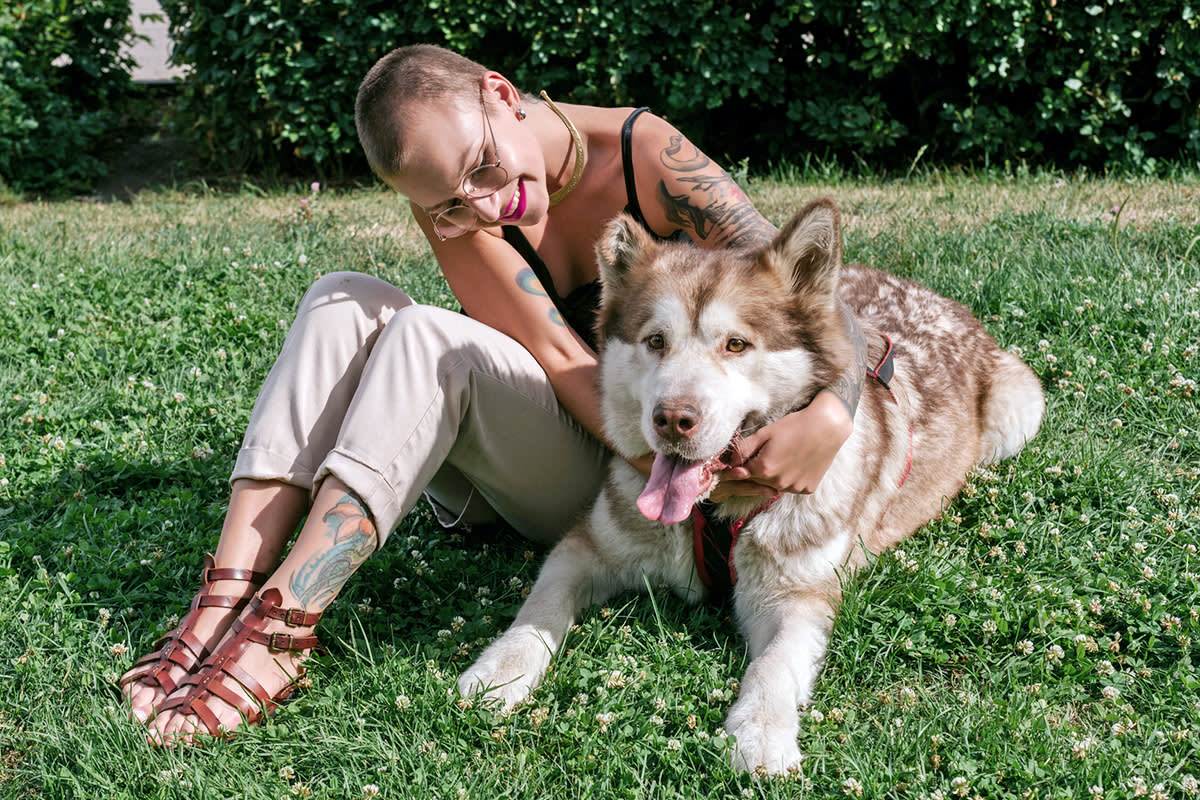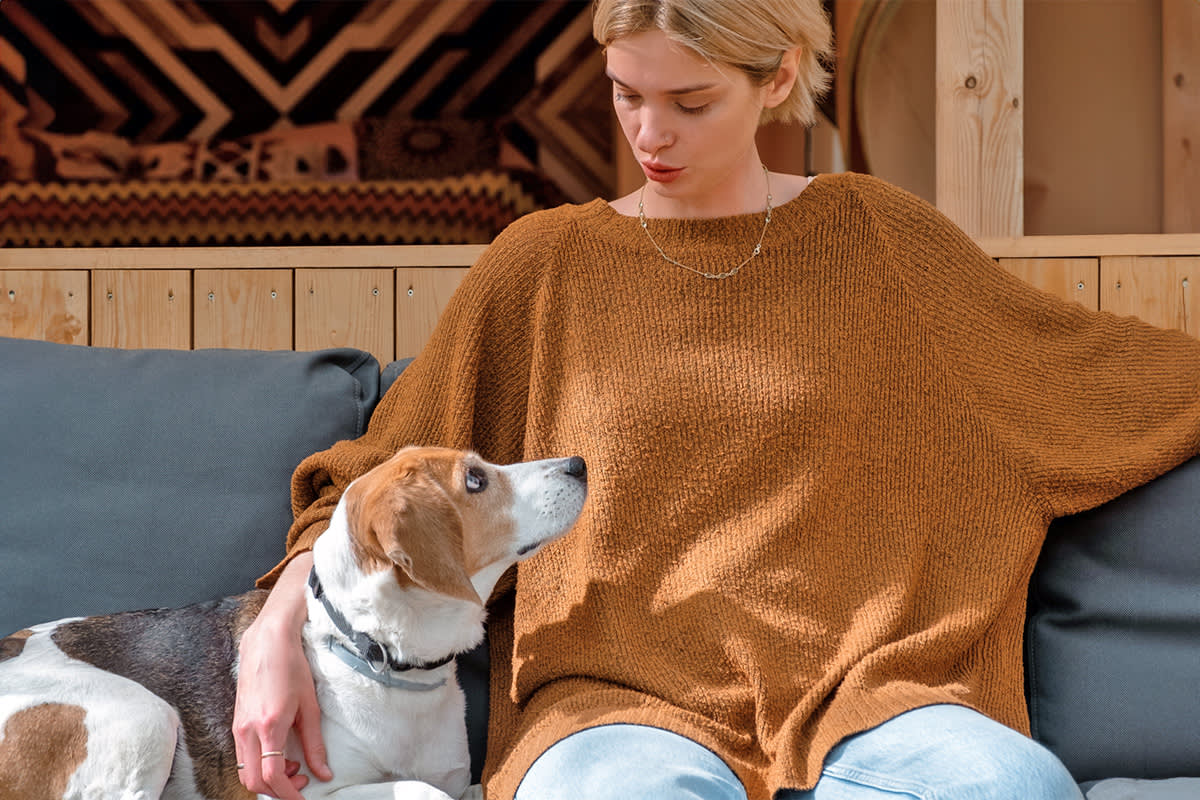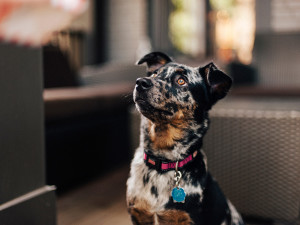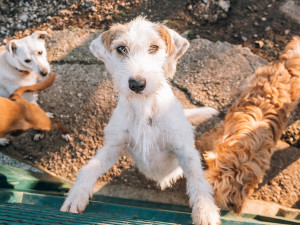Does It Affect Your Dog if You Change Their Name After Adopting Them?
From puppies to seniors, new friends to foster fails, here’s how to navigate a moniker swap.
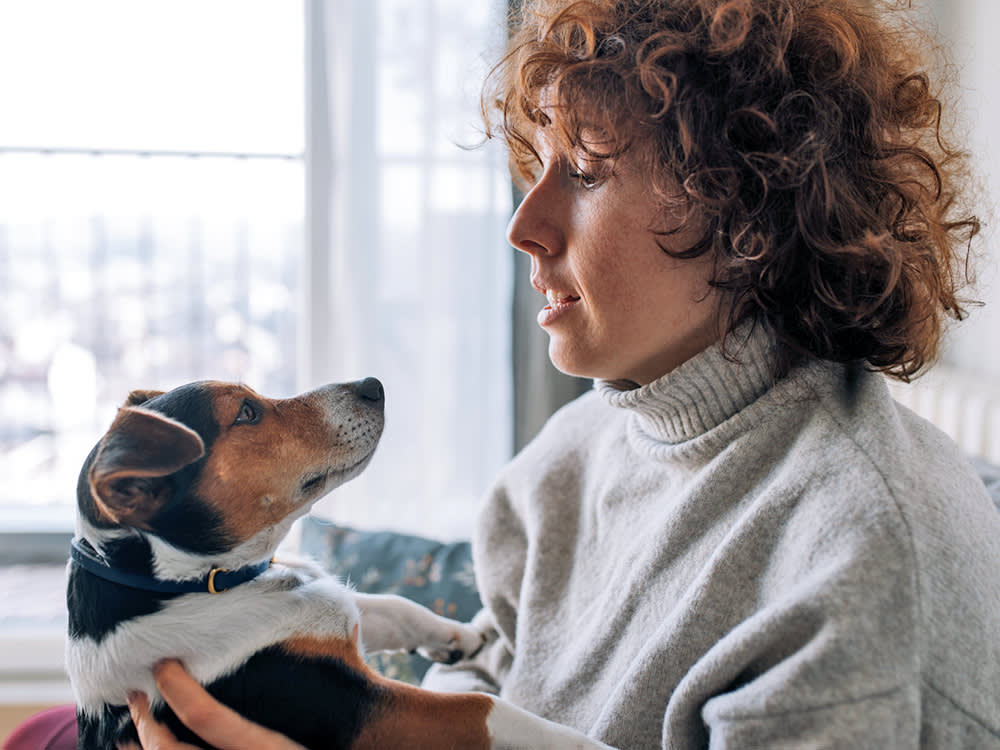
Share Article
When I first began fostering my younger dog, Rosey, my friends and family saw the writing on the wall long before I did. Like so many people who have foster failed, I spent months in denial — convinced I could give the adorable ball of brown fur away when the time came. But one afternoon, less than 24 hours before Rosey was set to go to an adoption event, something inside me cracked. I called the rescue organization on the verge of tears and adopted her on the spot, fulfilling my destiny.
After wiping the tears off my face and saving all of the requisite forms, I found myself facing a new dilemma: Should I keep the name the shelter had given my new dog after dutifully using it for months? Would a Rosey by any other name still smell as sweet? (Well, that depends on when she’s had a bath.) At the time, I worried changing her name could confuse her, so I kept it. Still, I’ve always wondered if the tweak would have mattered to her as much as it did to me.
As I suspected at the time, it turns out I was way overthinking things. In fact, according to certified dog behavior specialist Laura Garberopens in new tab, Rosey probably would have adapted fairly easily. In many cases, changing an adopted dog’s name can be helpful, Garber says, “especially for dogs where their past experiences have not been good ones.” By shedding the old name, you and your dog can start a whole new chapter.
But really, what is in a name?
For many of us, naming our dogs is a major bonding activity. As Garber puts it, “It’s a way that we forge relationships. We name our dogs by the way we feel and relate to them.”

Case in point: When I adopted my older dog, I knew immediately that we’d be doing away with his old name, “Nutron.” (While I have nothing but respect for dog-rescue organizations everywhere, I do often wonder how the hell they come up with some of these names.) I came up with his new name, “Frasier,” almost immediately; somehow, it just seemed to fit his cuddly appearance and somewhat finicky personality, like that of the popular sitcom character. I distinctly remember looking at one of his photos, where he was giving the photographer some serious side-eye, and thinking, “This dog will probably judge my taste in wine.” Because Frasier had only been with his foster parent for a short time before coming home with me, I felt no qualms about renaming him.
From the dog’s perspective, Garber says, a name change is usually not a big deal. For most shelter dogs, she says, “the history of the existing name may not even be very long.” Unless someone has really taken the time to train the dog to recognize the name, they might not know it at all. Teaching a dog a new name is all about building a positive association to that word, she says, and for most, that can only be a good thing.
Is there any situation where changing a dog’s name is a bad idea?
When I asked if there might be any exceptions to the rule, Garber named only one possibility. If you’re adopting a senior dog who spent a long time with a loving family, she says, “That might be a situation where they already associate that name with a feeling of selfness. So then, I might say, maybe keeping the same name would be a good idea.” In these cases, she adds, the new pet parents could use a nickname to strike up a personal connection.
“Our nickname for our dog is Poochy-pants,” Garber says (which, awww!). “When I say, ‘Poochy-pants,’ she looks at me, she responds to it in the same way that she responds to her name. So, I think that even without changing a dog’s name, you can, you can associate a nickname to them or another word to them that’s not going to interrupt what they already have established with their original name.”
How do you train them if you do change their name?
As for how to teach your dog a new name (or nickname)? You’ll be shocked to learn that treats are involved. Try saying the name once, perhaps accompanied by some kissy noises. If your dog responds, hand over a reward. If they don’t, give it a rest and try again later.
“The mistake people make is that they repeat the name over and over again,” Garber says. By doing so, she warns, “you’re actually making that word more dilute. It’s less meaningful because now you’ve said it four times without result.”
Some dogs can learn to respond to a name in just a couple minutes; others will take longer. If you’re struggling to get your dog to respond to what you’ve chosen to call them, consider booking time with a trainer who can help you master the technique. With a little help, your dog will be answering to a new name in no time.

Laura Bradley
Laura is a New York-based experienced writer and mom of two rescue pups. Her work has appeared in Slate, Vanity Fair, Daily Beast, The Washington Post, The Atlantic, Yahoo! News, Vulture, Grazia Magazine, and more. When she is not writing or walking the pooches, you will probably find her in the community garden.
Related articles
![A woman wearing a yellow headband and a white off-the-shoulder shirt with blue jeans and platform black flower boots kneeling next to her black Poodle mix dog on the lawn outside]()
How to Teach Your Dog Your Name
Your dog might not know your name. Don’t take offense; just play this game.
Do Dogs Understand Our Words?
Say What? A look at the types of words that dogs understand.
![Short-haired blonde woman in a tan sweater and blue jeans sitting on a bench talking to her Beagle mix dog who is looking up at her]()
How You Say Something to Your Dog Matters More Than What You Say
TikTok pet parents have made this clear: Tone matters. Celebrity dog trainer Nicole Ellis says dogs can hear “stress in our voice — whether directed at them or when they hear us talking to others.”
![A dog at a shelter looking up at the camera.]()
10 Questions to Ask a Shelter About an Adoptable Dog
From exercise needs to medical history to compatibility with kids, here is everything you need to know.
![Girl sitting on couch hugging her playful dog with the window open to outside]()
7 Myths About Rescue Animals—Debunked
For starters: No, they’re not all traumatized and yes, you can find a purebred puppy at a shelter.

